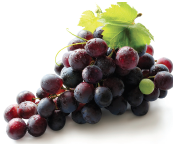The authors investigated the effects of increasing grape seed extract doses on the severity of chemotherapy in a rat model and its coincident impact on chemotherapeutic effectiveness in colon cancer cells. Female Dark Agouti rats were gavaged with grape seed extract (400–1000 mg/kg) or water (day 3–11) and were injected intraperitoneally with 5-Fluorouracil (150 mg/kg) or saline (control) on day 9 to induce mucositis. Daily metabolic data were collected and rats were sacrificed on day 12. Intestinal tissues were collected for histological and myeloperoxidase analyses. Caco-2 cell viability was examined in response to grape seed extract in combination with 5-Fluorouracil by 3-(4,5-Dimethylthiazol-2yl)-2,5- diphenyl-tetrazoliumbromide) assay. The results showed that compared with 5-Fluorouracil controls, grape seed extract (400–1000 mg/ kg) significantly decreased the histological damage score (P<0.05) in the jejunum. Grape seed extract (1000 mg/kg) increased jejunal crypt depth by 25% (P<0.05) in 5-Fluorouracil treated rats compared to 5-Fluorouracil controls, and attenuated the 5-Fluorouracil -induced reduction of mucosal thickness (25%, P<0.05). Grape seed extract (600 mg/kg) decreased myeloperoxidase activity by 55% (P<0.01) compared to 5-Fluorouracil controls. The authors conclude that grape seed extract may represent a new therapeutic option to decrease the symptoms of intestinal mucositis while concurrently impacting on the viability of colon cancer cells. PLoS One. January 2014. PMID: 24465501.









